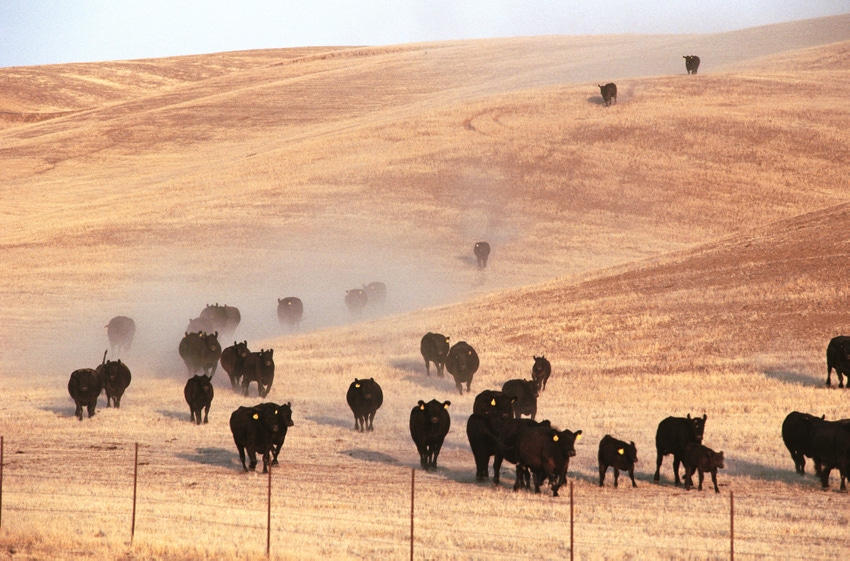
With the additional case of equine Vesicular Stomatitus (VS) reported in Nueces County last week, raising the total number of Texas horses to 10 confirmed cases in four different South Texas counties, Louisiana becomes the latest state to impose enhanced requirements on horses and other livestock crossing their state line from a state that has diagnosed cases of VS.
Horses and livestock on six sites across the four counties remain under quarantine in what has been the first outbreak of VS in Texas since 2009. Adding to concerns is the latest USDA-APHIS weekly surveillance report that indicates a total of 92 animals across Texas are considered "susceptible" to VS infection including the 10 equine that have already tested positive for the disease.
An additional 67 horses, four bovine and 11 goats are also under observation because of either early signs of VS infection or as a result of suspected contact with quarantined animals according to the latest USDA-APHIS VS situation report.
For the latest on southwest agriculture, please check out Southwest Farm Press Daily and receive the latest news right to your inbox.
A total of six (6) VSV-positive equine premises remain in Texas; one (1) in Kinney County, two (2) in Hidalgo County, two (2) in San Patricio County, and one (1) in Nueces County. On the single premises in Kinney County and on one of the two premises in Hidalgo County, the lesions have healed in affected horses and both premises have begun a 21-day countdown to quarantine release.
Insect vector
Texas animal health officials say sand flies and black flies likely play a role in the spread of the virus. Controlling insects around livestock is important to horse and herd health.
Due to an increasing number of confirmed Vesicular Stomatitis cases in Texas, Louisiana Department of Agriculture and Forestry animal health officials are imposing enhanced requirements effective immediately on livestock entering Louisiana from a state that has diagnosed cases of VS.
According to a statement issued by Louisiana animal health officials on June 26: "Any livestock (equine, bovine, porcine, caprine, or ovine) entering Louisiana from a county where VS has been diagnosed within the last thirty (30) days must be accompanied by a Certificate of Veterinary Inspection written within ten (10) days of entry containing the following statement: All animals identified on this certificate have been examined and found free from signs of VS, have not been exposed to VS, and have not originated from a premises which is under quarantine for VS."
As a result of the VS cases reported in Texas since late May, similar limitations have already been imposed by California, Florida, Idaho, Illinois, Kentucky, Michigan, Montana, Nebraska, New York, North Carolina, North Dakota, Oklahoma, South Carolina, and Vermont.
Also, international limitations on the movement of Texas livestock are in place. Limited movement restrictions have been enacted by Canada, the European Union, Russia, and South Korea. A complete list of state and international restrictions is available from the USDA Veterinary Services' (VS) Austin office at 512-383-2411.
In the past decade the Southwestern and Western United States have experienced a number of VS outbreaks. Outbreaks usually occur during the warmer months, often along waterways. As a result, certain species of wildlife including cervids such as whitetail deer and mule deer, as well as feral pigs can contract and spread the disease.
Viral infection
VS is a viral infection that can cause blisters and sores in the mouth and on the tongue, muzzle, teats or hooves of horses, cattle, swine, sheep, goats, llamas and other animals. Lesions usually heal in two or three weeks.
Because of the contagious nature of VS and its resemblance to other diseases such as foot and mouth disease (FMD), however, animal health officials urge livestock owners and caretakers to report these symptoms to their veterinarians immediately. Most animals recover well with supportive care by a veterinarian, but some lesions can be painful.
While human are not immune from effects of VS, human cases are generally limited to flu-like symptoms that disappear after a few days. Animal health officials advise animal handlers to wear protective gloves when working with livestock and to wash hands regularly. In addition, animal handlers are advised to avoid contact with infected animals if possible.
Animal health officials say VS outbreaks are not unusual and not considered to be a life-threatening condition, but the disease can spread quickly between infected animals. Horse and livestock owners are urged to carefully monitor stock and watch for early signs or symptoms of the disease and should report those symptoms immediately when they occur.
More information about VS is available at http://www.tahc.state.tx.us/news/brochures/TAHCBrochure_VS.pdf .
About the Author(s)
You May Also Like




